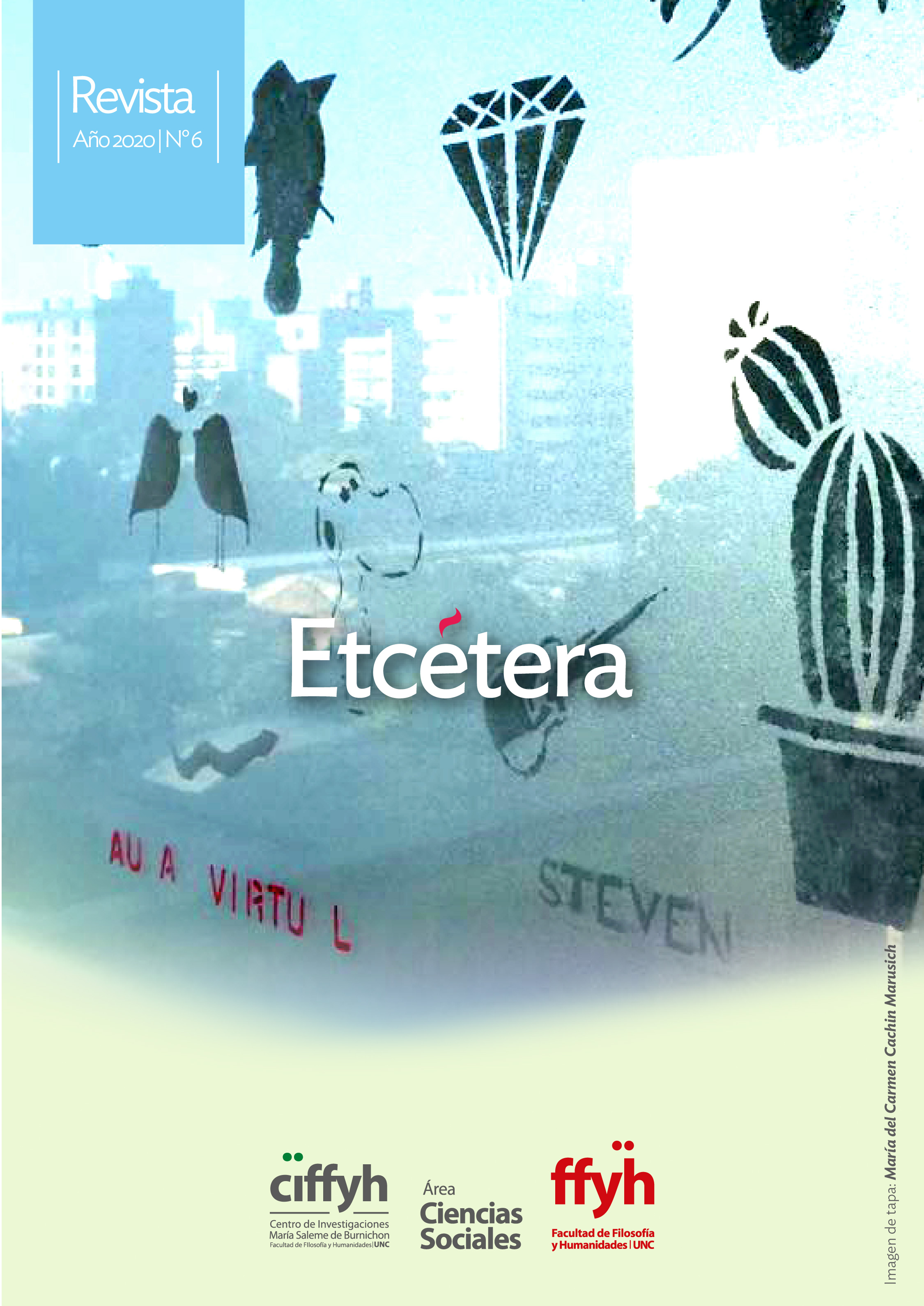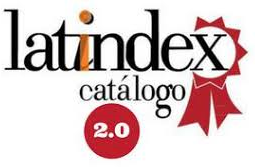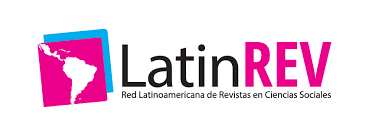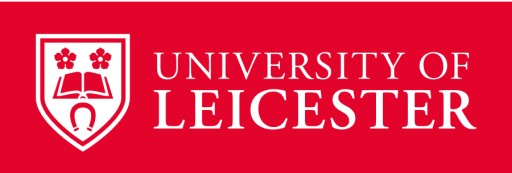Youth, activists and social organizations around the Ingreso Familiar de Emergencia (IFE) in San Francisco, Córdoba.
Keywords:
Social Organizations, Youth, ActivistsAbstract
This article presents a brief analysis of the relationships that are built between youth, leaders and social organizations in La Milka neighborhood in the city of San Francisco, Córdoba, around the Ingreso Familiar de Emergencia (IFE). This program was implemented as a palliative measure in the face of the crisis that implied the preventive and obligatory social isolation in the sectors with the lowest resources in Argentina. This isolation was a measure adopted by the National State in response to the pandemic caused by Covid-19. Based on some experiences in the field participating in the IFE registration process, I try to analyze what it means for some young people in the neighborhood to register in the program. I ask how the social relationships built before the social isolation between these youths and particular social and militant organizations are maintained, reinforced and updated. Also, I try some reflections about the role of a former political militant, of social and/or political organizations that work and worked in the neighborhood, and of the National State regarding the requirements, the ways of applying and the conflicts around the inscriptions to that program.
Downloads
References
Abu-Lughod, L. (1991). Writing against culture. En: R. Fox (ed.), Recapturing Anthropology: Working in the Present. Estados Unidos.
Bermúdez, N. y Previtali, M. (2014). Merodear la ciudad. “Miradas antropológicas sobre espacio urbano e “inseguridad” en córdoba”. Córdoba: IDACOR.
Bourdieu, P. (1988 [1987]). Cosas Dichas. Buenos Aires: Gedisa.
Briones, C. y Ramos, A. (2010). Replanteos teóricos sobre las acciones indígenas de reivindicación y protesta: aprendizajes desde las prácticas de reclamo y organización mapuche-tehuelche en Chubut. En: G. Gordillo y S. Hirsch (comps.), Movilizaciones indígenas e identidades en disputa en la Argentina, pp. 39-78. Buenos Aires: Ed. La Crujía
Calla, P. y Lagos, M. (2007). El Estado como mensaje de dominación. Bolivia: PNUD.
Crisafulli, L. y Barreto, I. (2011). ¿¡Cuanta Falta!? “Código de Faltas, Control Social y Derechos Humanos”. Córdoba: INECIP.
Garriga Zucal, J. (2007). Haciendo Amigos a las piñas. Buenos Aires: Prometeo Libros.
Geertz, C. (1997). El antropólogo como autor. Buenos Aires: Paidós.
Gordillo, M. (2010). Piquetes y Cacerolas. El “argentinazo” de 2001. Buenos Aires: Sudamericana.
Guber, R. (2009). El salvaje metropolitano. Reconstrucción del conocimiento social en el trabajo de campo. Buenos Aires: Paidós.
Kessler, G. (2012). Movilidades laterales. Delito, cuestión social y experiencia urbana en las periferias de Buenos Aires. En: Revista de Ciencias Sociales, V. 25, N. 3. Montevideo: DS-FCS.
Svampa, M. (2011). Argentina, una década después. Del <>a la exacerbación de lo nacional-popular. En: Revista Nueva Sociedad, V. 235. Buenos Aires.
Previtali, M. (2010). Andar en la Calle y rescatarse. “Una etnografía sobre jóvenes, familias y violencias en Villa El Nailon- Córdoba”. Tesis de Maestría en Antropología Social, Facultad de Filosofía y Humanidades, Universidad Nacional de Córdoba.
Pérez Lindo Linarez, N. (2018). Entre tiros y códigos. Una etnografía sobre violencias y usos de la calle en jóvenes de la ciudad de San Francisco- Córdoba. Trabajo Final de Licenciatura en Antropología, Facultad de Filosofía y Humanidades, Universidad Nacional de Córdoba.
Zelaznik, J. (2011). La Política en tiempo de los Kirchner. Buenos Aires: Ed. Universitaria de Buenos Aires.
---
Sitios Web Consultados
Sitio web del diario La Voz de San Justo. Motor de búsqueda del diario, donde se pueden ver los resultados al momento de buscar el nombre del barrio: http://www.lavozdesanjusto.com.ar/Buscador/PorTitulo?word=La+mIlka
Sitio web del portal de El País. Noticia sobre cuando fue declarada la pandemia por la OMS: https://elpais.com/sociedad/2020-03-11/la-oms-declara-el-brote-de-coronavirus-pandemia-global.html
Sitio oficial del gobierno de Argentina. Boletín con el decreto de Aislamiento Social Preventivo y Obligatorio lanzado por el presidente Alberto Fernández: www.argentina.gob.ar/noticias/el-gobierno-nacional-decreto-el-aislamiento-social-preventivo-y-obligatorio
Sitio web del diario 0223. Noticia sobre el lanzamiento del IFE: www.0223.com.ar/nota/2020-3-23-20-5-0-el-gobierno-lanza-un-ingreso-familiar-de-emergencia-de-10-mil-para-trabajadores-informales
Downloads
Published
Issue
Section
License
Copyright (c) 2020 Etcétera. Revista del Área de Ciencias Sociales del CIFFyH

This work is licensed under a Creative Commons Attribution-NonCommercial-ShareAlike 4.0 International License.
Aquellos autores/as que tengan publicaciones con esta revista, aceptan los términos siguientes:
- Los autores/as conservarán sus derechos de autor y garantizarán a la revista el derecho de primera publicación de su obra, el cuál estará simultáneamente sujeto a la Licencia de reconocimiento de Creative Commons que permite compartir, copiar, distribuir, ejecutar y comunicar públicamente la obra, siempre que: 1) se cite la autoría y la fuente original de su publicación (revista, editorial y URL de la obra); 2) no se use para fines comerciales; 3) En caso que se transforme o genere una obra derivada a partir de esta obra, deberá compartise bajo las mismas condiciones establecidas por esta licencia.
- Los autores/as podrán adoptar otros acuerdos de licencia no exclusiva de distribución de la versión de la obra publicada (p. ej.: depositarla en un archivo telemático institucional o publicarla en un volumen monográfico) siempre que se indique la publicación inicial en esta revista.
- Se permite y recomienda a los autores/as difundir su obra a través de Internet (p. ej.: en archivos telemáticos institucionales o en su página web) luego de la publicacion del articulo, lo cual puede producir intercambios interesantes y aumentar las citas de la obra publicada. (Véase El efecto del acceso abierto).
- El titular del copyright es Etcétera. Revista del Área de Ciencias Sociales del CIFFyH.



















